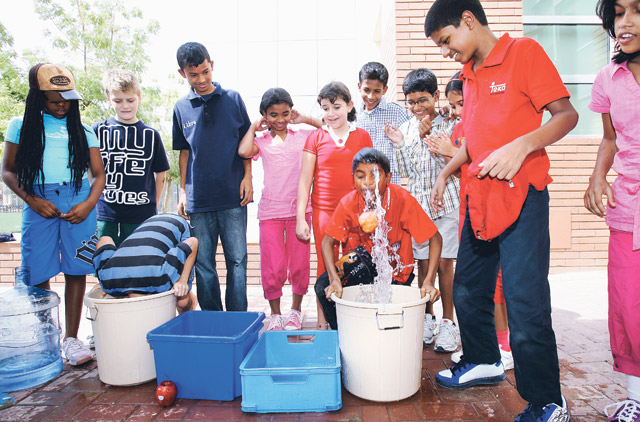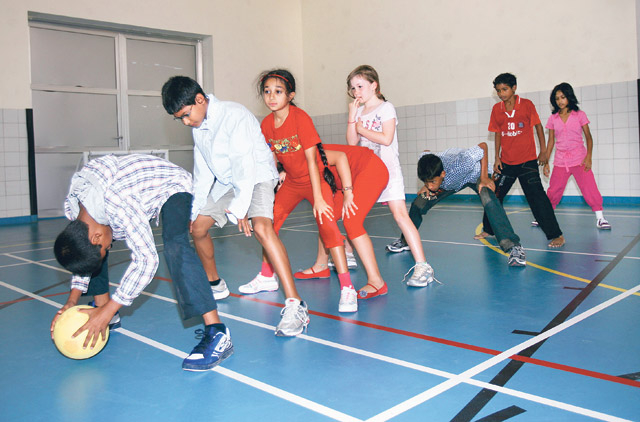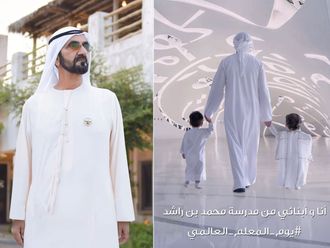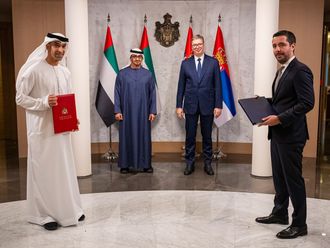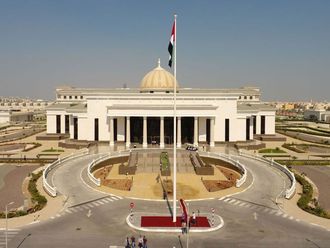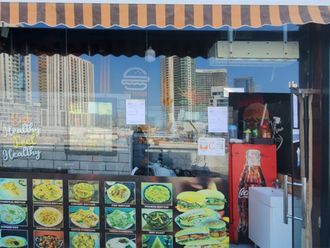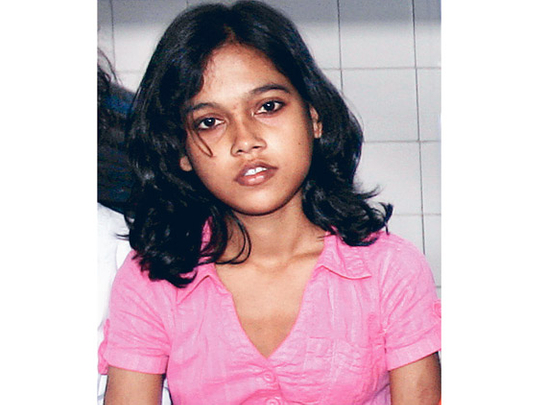
Dubai: Bilkis is a victim of the social and economic oppression typical of life in the slums of Bangladesh. She was married off at the age of 11, tortured by her husband's family for dowry, and finally sent back to her parents' house.
But those dark days of poverty and harsh childhood are now far behind for this perky young girl as she plays in the air-conditioned indoor basketball court in a premium British school in Dubai.
Bilkis, along with seven other children, is in Dubai for three weeks to attend a summer camp at the Taaleem-run Dubai British School in the Meadows, after which they are hoping to get scholarships to be enrolled in schools here.
The children, all from Bangladesh, have been brought to Dubai as part of the ‘Maria Project' that has been working to help provide educational opportunities for underprivileged children.
Origins
The project was started by Maria Conceicao, a 33-year-old Portuguese Emirates airlines flight attendant, who has over the past five years set up a school and community programmes in Bangladesh.
Bilkis said her life had changed for good since Maria had lifted her out of the dirt and muck of the slums. "I do not know why my parents forced me into a marriage with a 20-year-old man when I was just 11," she said.
"His family beat me up because my father could not pay more dowry. Finally I was sent back home and I wanted to work in order to support my family," said Bilkis, her voice quivering as she relived the pain and agony.
The girl said Maria found her in a garment factory and enrolled her in her school in Dhaka. "Now I am a student and I want to become a lawyer. There are many women and children like me who suffer at the hands of their husband's family. Some even get killed. I want to help these victims," said Bilkis, now 14.
Sujon Ishaq, aged 12, is another youngster who said he wanted to pass on the benefits of his education to his country that is suffering under the weight of its poverty. "I want to be a cardiologist," enthused Ishaq.
"It is my parents' dream, too. In Bangladesh, there are many villages that do not have any medical facilities. I want to build a big hospital in my village and treat poor people."
Others, such as 15-year-old Mosharof Hussain; Shah Alam and Tasleem, both 14; Shewly Aktr, 11; and Milon Mia said though they were excited to be in Dubai, they wanted to make the best use of the opportunity to obtain a world-class education.
No opportunities
Speaking to Gulf News, Maria said the educational system in Dhaka did not cater for the needs of these children due to social constraints. The next option for these children to receive a quality education was to find schools outside Dhaka that could accommodate them.
"Dubai is the ideal location as it has a diverse range of curriculum and schools offering high quality education. It is also culturally diverse and accommodating," Maria said.
Maria said the programme was made possible by the support of the project's volunteers and corporate entities such as Emirates which had provided the tickets, and the Libra education organisation that accommodated the children.
"Volunteers that have been to the project in Dhaka are hosting the children during their stay in Dubai," Maria said. "Other volunteer families have come forward and will host the students for the school year when they finally arrive to join schools in Dubai."
And when the children are finally ready to start a new life in Dubai, they will be joined by their parents As part of the project, the parents are learning English so that they, too, can find jobs in Dubai.
Maria said so far she had been able to find work for more than a dozen parents.
"The idea is to break the cycle of poverty and empower them. It is difficult to turn around a people when they are surrounded by economic and social constraints. I wanted to take them out of slums and show them that there is a whole new world of opportunities outside," she said.
Do you know of other such initiatives around the world? Would this campaign be a turning point in the lives of the underprivileged children? What more can be done to help them?


